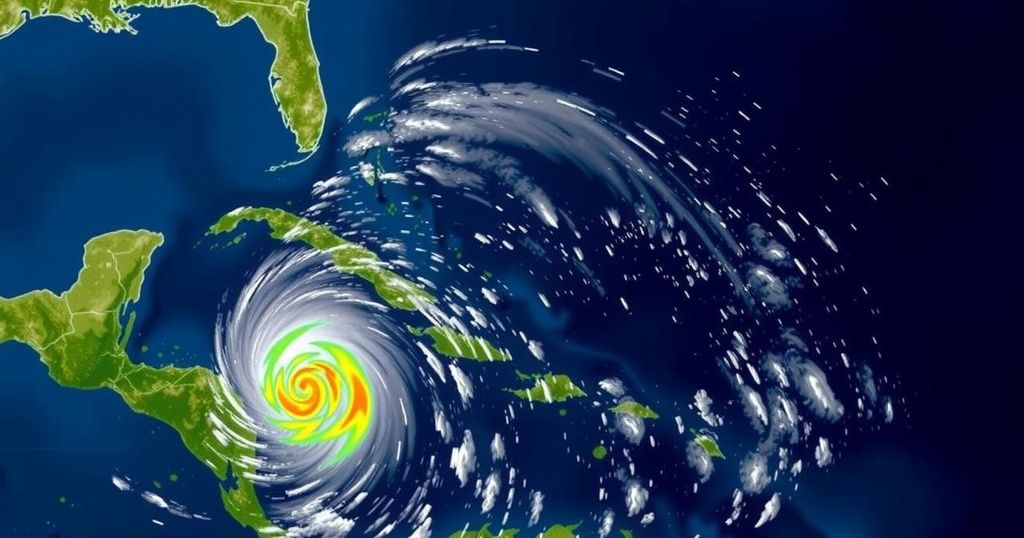Record-Breaking 2024 Atlantic Hurricane Season: A Year in Review

The 2024 Atlantic hurricane season was a historic event with 18 named storms, 11 hurricanes, and unprecedented intensity factors. Notable storms included Hurricane Beryl, marking the earliest Category 5 hurricane, Hurricane Helene, the deadliest since 2005, and Hurricane Milton, which exemplified rapid intensification. The season concluded with Hurricane Rafael, a rare late-season storm in the Gulf, underlining active pattern changes reflective of climate impact.
The conclusion of the 2024 Atlantic hurricane season reveals a notably unprecedented pattern of storm activity. With 18 named storms, 11 hurricanes, and five major hurricanes, this season has significantly exceeded the average, which reports 14 named storms, seven hurricanes, and three major hurricanes annually. The contributing factors included unusually elevated sea surface temperatures and the dissipation of El Niño conditions, which created favorable conditions for hurricane formation.
Among the notable storms, Hurricane Beryl emerged as the earliest Category 5 hurricane on record. Originating from a tropical wave near Africa, Beryl reached landfall in the U.S. causing severe flooding and power outages as it moved through Texas and Louisiana. Hurricane Helene was another significant storm, striking Florida as a Category 4 hurricane and resulting in over 150 fatalities, marking it as one of the deadliest hurricanes in the U.S. since Hurricane Katrina.
Additionally, Hurricane Milton gained recognition for an astonishing rate of intensification, becoming a Category 5 storm with winds peaking at 180 mph before making landfall in Florida. This storm also caused a record number of tornadoes, showing the profound impact of rapidly intensifying tropical systems. Furthermore, the simultaneous occurrence of three hurricanes in October marked a significant event, with such activity never previously documented past September.
Lastly, Hurricane Rafael, although not exceptionally strong, was noted for being a rare late-season hurricane in the Gulf of Mexico. The conclusions drawn from this season underscored an active hurricane season that contributes to the ongoing discussions regarding climate change and its effects on storm patterns in the Atlantic basin.
The 2024 Atlantic hurricane season has been characterized by heightened storm activity, driven primarily by environmental factors such as warmer sea temperatures and a shift from El Niño to neutral conditions. Hurricane forecasting relies on understanding these elements to predict storm formation and intensification. The National Oceanic and Atmospheric Administration (NOAA) defines average hurricane season activity, and this year’s outcomes surpassed these norms significantly.
In summary, the 2024 Atlantic hurricane season has not only broken records in storm activity but also highlighted the increasing intensity and impact of hurricanes. With a total of 18 named storms, multiple category 5 hurricanes, and significant fatalities, this season serves as a reminder of the potential dangers posed by tropical storms. The notable instances of rapid intensification and late-season hurricanes further emphasize the need for research and awareness regarding climate-related impacts on hurricane development.
Original Source: www.nola.com








